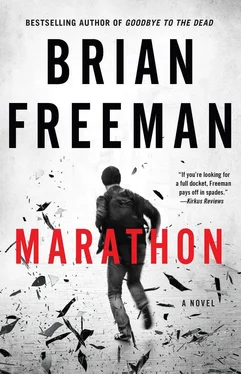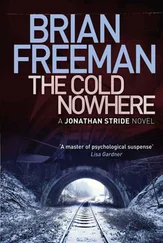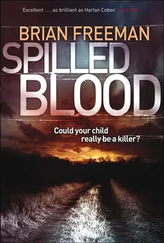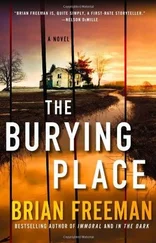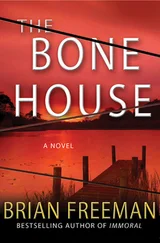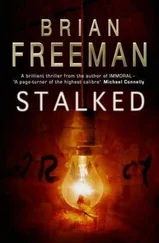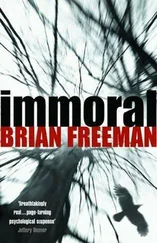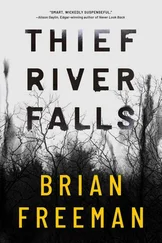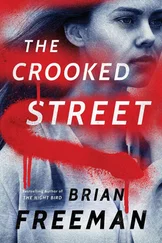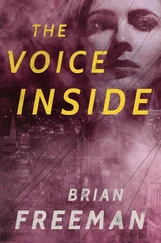Cat had been there when the bomb went off. On the way into Canal Park, she probably passed the bomber, escaping in the opposite direction as the timer ticked toward zero. It took Serena a long time to write back. He wondered if she was irritated with him for pushing the question so quickly. Then finally she replied: No, Cat didn’t see anyone suspicious.
He texted: I had to ask .
She wrote back: I know that . And then she added: Maggie called me. So the device was inside the Duluth Outdoor Company shop?
Looks that way .
Her next message was delayed again, but finally, she wrote back: Something happened at that store a few days ago. Do you remember? A homeless man caused a disturbance. Cops had to be called.
He remembered the incident. So?
She wrote back: It’s an odd coincidence.
That was true, and Stride normally didn’t trust coincidences, but for the moment, he didn’t see a plausible connection between the two events. He heard footsteps on the grass and looked over his shoulder and saw Haq jogging into the park. Without looking at Stride, the man slowed to a walk and checked the pulse in his neck. Haq took a squirt of water from a plastic bottle on his belt.
Stride texted: I have to go .
Haq approached the bench. Sweat and cologne clouded the air. When Haq wasn’t running, he was cycling; when he wasn’t cycling, he was lifting weights. He was a dark, handsome man, in his mid-thirties, the kind of teacher who caught the eye of college undergrads but who never looked back. He had a shock of jet-black hair and a prominent, aquiline nose. His skin was like gold, except for the neat line of his beard. He wore a black UMD long-sleeved T-shirt and nylon running pants.
Stride didn’t think he’d ever seen Haq smile or laugh; the man was relentlessly serious. He was smart, too, with an encyclopedic knowledge from his academic studies. Over the years, they’d discussed religion, philosophy, politics, and the Constitution. They brought opposite values to nearly every debate, but they’d found a way to be civil with each other and to respect their disagreements. The only thing he disliked about Haq was that the man could never quite shake the elitism of his upbringing, as if he still looked down on everyone else around him. He’d grown up in Egypt and now held dual citizenship. His father had a senior post in the Egyptian embassy in Washington, D.C.
Haq sat down on the other side of the bench. “I knew you’d be calling,” he said.
He had a high-pitched, slightly singsong voice, and although his English was perfect, he retained a Middle Eastern accent.
Stride heard the veiled accusation and felt bitterness coiled in the man’s body. Impatience. Exasperation at knowing that Stride would knock on his door. It wasn’t entirely misplaced.
“When Americans see a house on fire, they assume it must be dragons,” Haq went on. “Muslim dragons.”
Stride let the silence linger, but then he said, “This is your house, too.”
“Yes, I’m aware.”
“Did you see the FBI press conference?” Stride asked. “The Special Agent in Charge was clear that the investigation is wide open. We don’t know if this was terrorism. If it was, we don’t know who’s behind it.”
“Tell that to the president.”
“I’m not a politician, Haq,” Stride said.
“And yet here you are, Jonathan.”
“I’m just covering all the bases.”
“Please. You’re looking for dragons. It doesn’t matter what the FBI says or doesn’t say, or what the president says or doesn’t say. A bomb explodes, and Muslims are guilty until proven innocent. We are all guilty, every one of us. You accuse us of not sharing American values, but at the first sign of trouble, you jettison those values yourself.”
“People were murdered, Haq. People had their limbs blown off. This was a heinous crime.”
“I know that. It’s an awful, awful thing. I’m not minimizing the horror or pain of those affected. However, for us, for my community, I know what comes next. While you’re looking for evidence, I’m looking for pitchforks in the village square. They’ll be coming for us. Haven’t recent events made that clear?”
“I understand your concerns,” Stride said. “You know I appreciate your honesty and directness. One thing we’ve never done is play games with each other.”
“That’s true.”
“So now I’m going to be honest and direct with you,” Stride went on.
Haq looked back over his shoulder for the first time, and their eyes met in the semidarkness. “Go ahead.”
“Your community has more than its share of dragons,” Stride told him.
Haq didn’t protest or get angry. Instead, he dug into the zippered pocket of his sweats and removed a flat object wrapped in cloth. He unfolded the cloth and held up a runner’s medal by its ribbon.
“See this? I ran the marathon last year. And the year before. I would have run it again this year, but I spent months leading an effort to educate the Muslim community about the marathon and to get more Muslim runners involved. I recruited more than forty runners from the five-state region and arranged housing and transport this weekend. I coordinated with everyone at the race. I saw this as a way to bring us together , Jonathan. To focus on what we share instead of what divides us. And then this happens, and where do we end up? Even farther apart.”
Stride hated what came next. He didn’t like it, but he had no choice.
“These people you brought in—” he began.
This time, Haq exploded. His fist slammed down on the bench. He leaped to his feet, and his voice was loud in the peacefulness of the park. “What, you want their names? Their addresses?”
“Yes, I do.”
“So you can interrogate them! For what? What’s their crime? Running while Muslim? These people did nothing . They came here to run twenty-six-point-two miles from Two Harbors to Duluth. For most people, that would be an amazing thing. For us, apparently, it’s nothing but probable cause.”
Stride stood up, too. “I’d like to say we live in a perfect world, but we don’t. There hasn’t been much peace around here lately, and a lot of the unrest has to do with religious differences. I can’t ignore that.”
“You mean since Dawn Basch came to town?” Haq asked. “And whose fault is that?”
“No one in city government welcomed or encouraged her, but we also can’t stop her from holding a private conference. You know that. She can say whatever she wants. That’s her right. It doesn’t mean you have to listen.”
“So we should ignore her? We should just laugh when she insults and degrades us? Well, I’m sorry, but to us, it isn’t funny. Think about it, Jonathan. You’re married to a lovely woman. I’ve met Serena. Now imagine someone came to town and got in your face and screamed at you that your wife was a pig. A whore. I think you’d be angry about that.”
“You’re right. I would.”
“Would you strike back? Would you punch whoever said that?”
“I don’t know. Maybe. But that’s my point, Haq. People lose control. There’s a lot of anger in Duluth because of Dawn Basch. More than anger. Rage . The question is whether someone decided to act on that rage. I know you. You have your ears to the ground. Everyone talks to you. Is there anyone that the community was worried about?”
Haq held the race medal in his palm. He balanced it on his hand as if measuring its weight.
“When this Dawn Basch tweets, she also uses the hashtag #islamismurder,” he said in measured tones. “People talk about #noexceptions as if she’s defending free speech, but that’s not what she means. When she says #islamismurder and #noexceptions together, she is saying that every Muslim is a killer.”
Читать дальше
